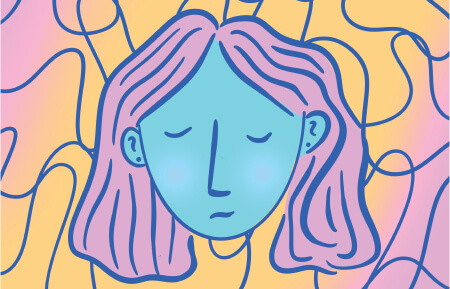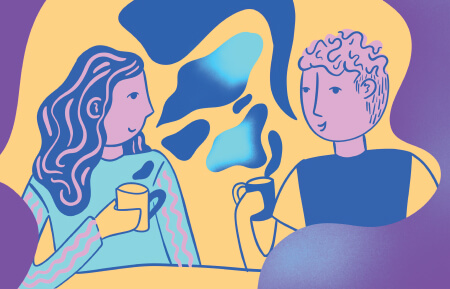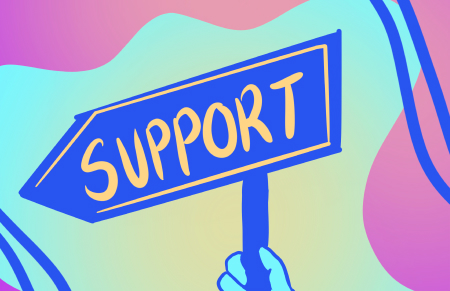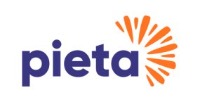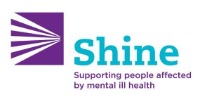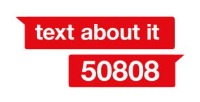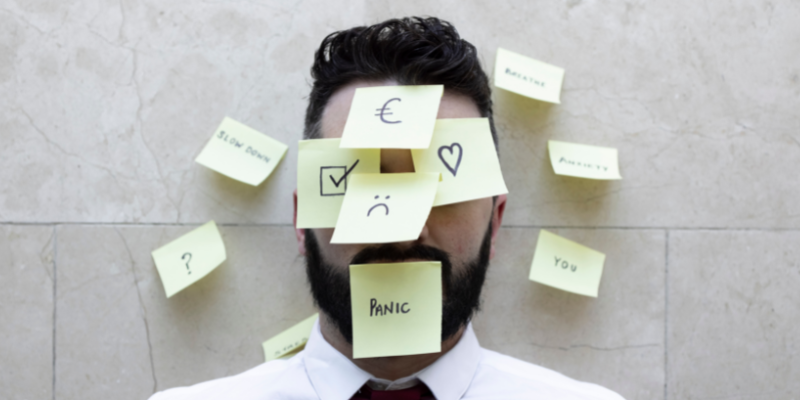
Understanding Anxiety & Panic
Both anxiety and panic are natural emotions that we all experience, often in response to situations we find threatening or worrying.
We can all identify with that uneasy, apprehensive feeling of anxiety in our stomachs. Chances are we feel like this during stressful life events, like moving house, before exams, an operation, or an important event or challenge in our lives. And certain levels of anxiety can even be good when we need to perform well or in an emergency.
Panic is a natural response to danger and is connected to the body’s “fight or flight response", but panic attacks can occur in normal everyday situations, when there's no danger involved.
Although panic attacks & anxiety are not the same thing, they do share some physical and emotional symptoms. Learning to recognise the signs in ourselves and in others is the first step to managing anxiety and panic in our lives.
What is Anxiety?
- A feeling of worry, nervousness, or unease. It can also be accompanied by Panic.
- Comes on gradually and tends to slowly build, whereas a panic attack can happen suddenly.
- Anxiety typically has a trigger, something stressful, overwhelming, or threatening or the fear or anticipation of it.
- Anxiety can range from mild to severe and can last for hours, days or even months.
It’s healthy to feel anxiety when real danger is present, but when it goes beyond actual danger and lingers on in the mind, it can become a more debilitating anxiety or worry. It can be prompted by uncertainty or a feeling of being out of control, a reality we all have to learn to live with.
It can sometimes be hard to understand why we feel anxious and are struggling to cope every day. Anxiety can make even the simplest of things difficult and it’s at this point that there’s a serious issue. But it can be hard to understand this when we're experiencing the other physical symptoms of anxiety. And so, learning to recognise the signs in ourselves or a loved one is key to managing anxiety.
What is a Panic Attack?
We all recognise panic as a common response to a dangerous or stressful situation, and the feeling usually passes fairly quickly. However, for some of us it lingers and we may also suffer with panic attacks.
- Panic attacks come on quickly and involve a very intense reaction. They can feel frightening & overwhelming.
- They can also occur when anxiety reaches a peak.
- Panic attacks can be unexpected or unexpected. They can arrive out of the blue, when we're not in any danger, such as when watching tv or asleep. Or they can be an expected response to an external trigger such as a phobia.
- The body releases adrenaline which can trigger the flight, fight or freeze response that is part of our physical make-up.
- We may not actually know what we are panicking about.
If we suffer regularly, we can start to fear the feeling of panicking itself, which in turn causes more panic. It can feel like a vicious circle. But there are steps you can take when you feel a panic attack coming on, so it's important to learn to recognise the signs and work out what helps you.
Know the Signs
Everyone is different but if you are concerned about anxiety or panic, are any of these signs familiar?
Physical Signs
- Tense Muscles
- Trembling
- Churning Stomach
- Nausea or diarrhoea
- Headache or dizziness
- Heart palpitations & shortness of breath
- Numbness or “pins & needles” in arms, hands or legs
- Sweating
- Problems sleeping
- Clammy hands or feet
- An inability to be still or stay calm
Emotional Signs
- Worry
- Nervousness
- Loss of concentration
- Frustration
- Racing thoughts
Behavioural Signs
- Mood swings
- Loss of appetite or over-eating
- Communicating less with friends & family
- Going out less than usual
- Suicidal thoughts
- Self-harm or thoughts of self-harm.
Ignoring it won't make it better
Avoiding situations that make us anxious might help in the short term, but the trouble is the anxiety will keep occurring and may be accompanied by panic.
Follow the guides below on how to manage panic for yourself or for another and how to access supports.
If you are in need of urgent assistance:
- Call a helpline:
- Samaritans 24/7 on Freephone 116123
- Pieta 24/7 1800 247 247
- Text 50808 for free 24/7 Crisis Text Support
- Click here for a list of specialist support services
- In the event of an emergency, call 999 or 112
- GP: Talk to your GP to find a therapy that suits you.
Access Support Services
We should never be afraid to ask for the help that we deserve. Keep helpline numbers handy. Consider attending a support group.
Talking through concerns with someone who understands can be very reassuring and can help in learning new coping skills. It’s good to know you’re not alone and that other people have felt the same as you do but have got through it.
Some key support services for depression are below and a full list of Specialist Support services can be accessed here.
Providing online, telephone & face to face help and support to all affected by depression, mood related conditions & bipolar disorder. Daily support & self-care groups inc. Phone-in & Zoom peer groups. Free lecture series (currently online) on a range of topics related to depression. Their website www.aware.ie has useful resources & information.
- Support Line Helpline (Freephone): 1800 80 48 48 (10am-10pm daily)
- Email: supportmail@aware.ie (expect response within 24 hours or often sooner)
- Web: aware.ie
Providing 24/7 crisis helpline and professional one- to-one counselling for anyone who is self-harming, feeling suicidal or suffering the effects of a suicide event or bereavement. The service is also available to anyone who is feeling very low, anxious or depressed. For information & branches nationwide, see www.pieta.ie Helpline (24hr): 1800 247 247 to speak with a therapist if you are in crisis
- Text HELP to 51444
- Call 0818 111126 to make an appointment with a therapist
- Email: mary@pieta.ie
- Web: pieta.ie
Longstanding & trusted, Samaritans volunteers provide confidential 24/7 helpline support, befriending and istening to those in personal crisis, 365 days a year. 21 branches across Ireland. Also provide a Self-Help App. to keep track of feelings, get coping recommendations & to stay safe in a crisis. elpline: Freephone 116 123 (callers from Rep of Ireland & N Ireland)
Email: jo@samaritans.ie (Rep. of Ire) jo@samaritans.org (N Ire) email response issues within 24 hours)
Web: samaritans.org
National 24-hour active listening service for children & young people up to & including 18 years of age. Callers can contact the service at any time, to talk about any issue on their mind.
- Chat online: Childline.ie
Text: 50101
Call: 1800 66 66 66
Helping people recover from mental health problems. At weekly, group support meetings nationwide, embers support each other through their own experiences. Helpline: 1890 474 474
- Email: info@grow.ie
- Web: grow.ie
The national centre for youth mental health, Jigsaw has branches in Dublin and across Ireland. Services include access to free therapy and expert mental health support, both online and in person, for children and young adults aged 12-25 years. Jigsaw.ie is a great resource of information & eLearning including support articles, videos and online courses for young people, parents/guardians and those working with young people. Talk to a Jigsaw clinician online through the Jigsaw Live Chat, Ask Jigsaw and Group Chats.
Web: www.jigsaw.ie
Information, education, counselling & support groups for anyone with a mental health issue & their family members. Services include groups for people with a lived experience of a mental health difficulty, family & supporters groups and recovery training and education groups. Find your regional or local branch here. Helpline: 1890 621 631
- Email: phil@shineonline.ie
- Web: shine.ie

Specialist Telephone & Email service staffed by experienced mental health nurses, available to the general ublic as well as current service users & families. For support, early intervention or general queries, whether for callers own mental health or if concerned for another. Young adult service also available. Email: info@stpatsmail.com
- Support & Information Line: +353 1 249 3333 (9am to 5pm Mon-Fri, answer & call back facility out of hours)

Free 24-hour active listening service for teens up to & including 18 years of age. Young people can contact he service at any time, to talk about any issue on their mind. Teenline is a confidential and non-judgemental service. Call: 1800 833 634
Text About It is a confidential text messaging support service that provides immediate support for anyone going through a mental health or emotional crisis – big or small. Crisis volunteers are available 24/7 for anonymous text conversations and the service is free across all networks. Text About It is ideal if you rather text than speak to someone face to face or by phone. If the short code doesn't work on your network (An Post/48), you can still use the service by texting HELLO to 0861800280. Standard network message rates may apply to this 086 number.
- Available every day 24 hours a day.
- Text HELLO to 50808 to start the conversation or text HELLO to 0861800280
- 50808 Service is Free
- Standard message rates apply to 086 1800280 number only.
- Website: textaboutit.ie
